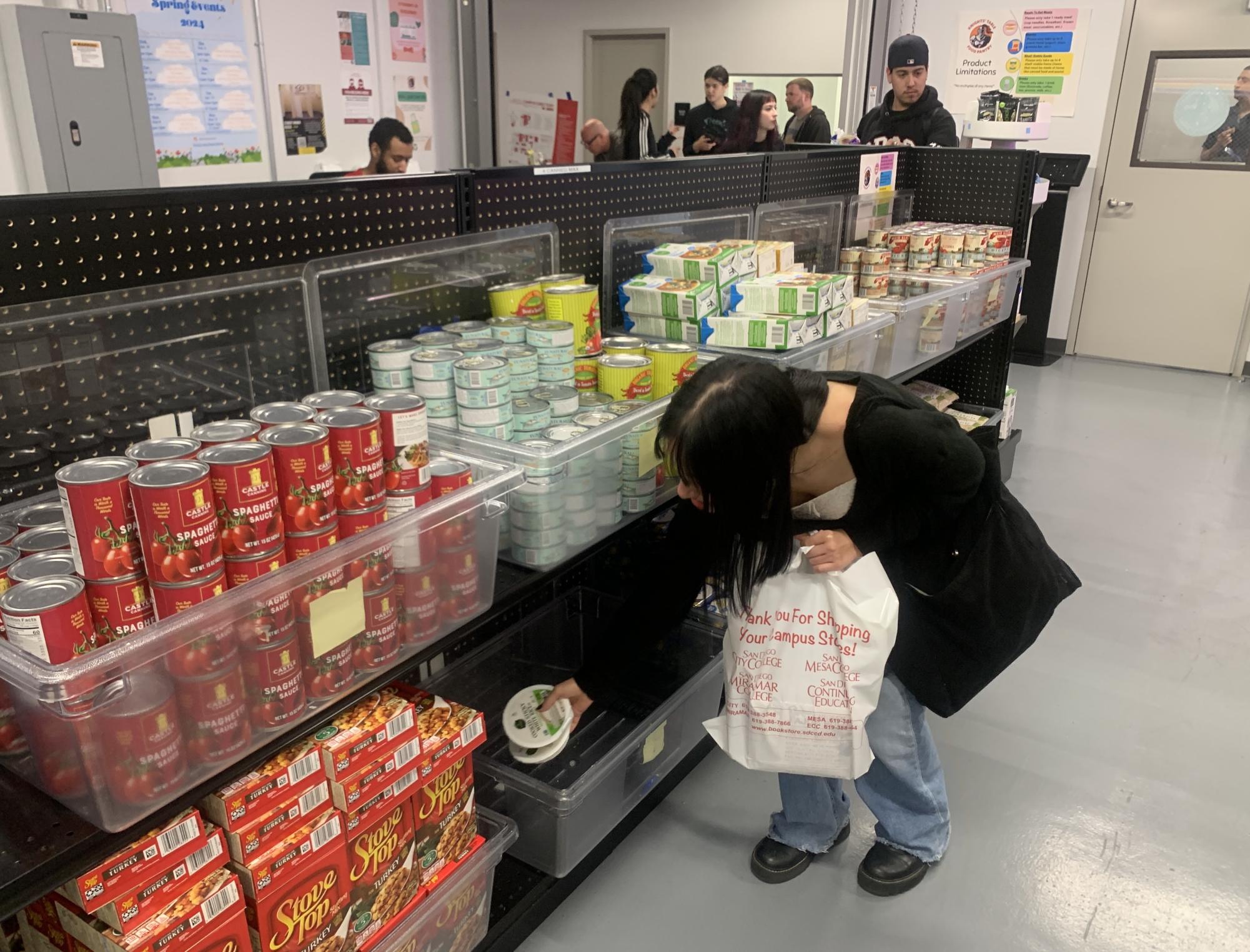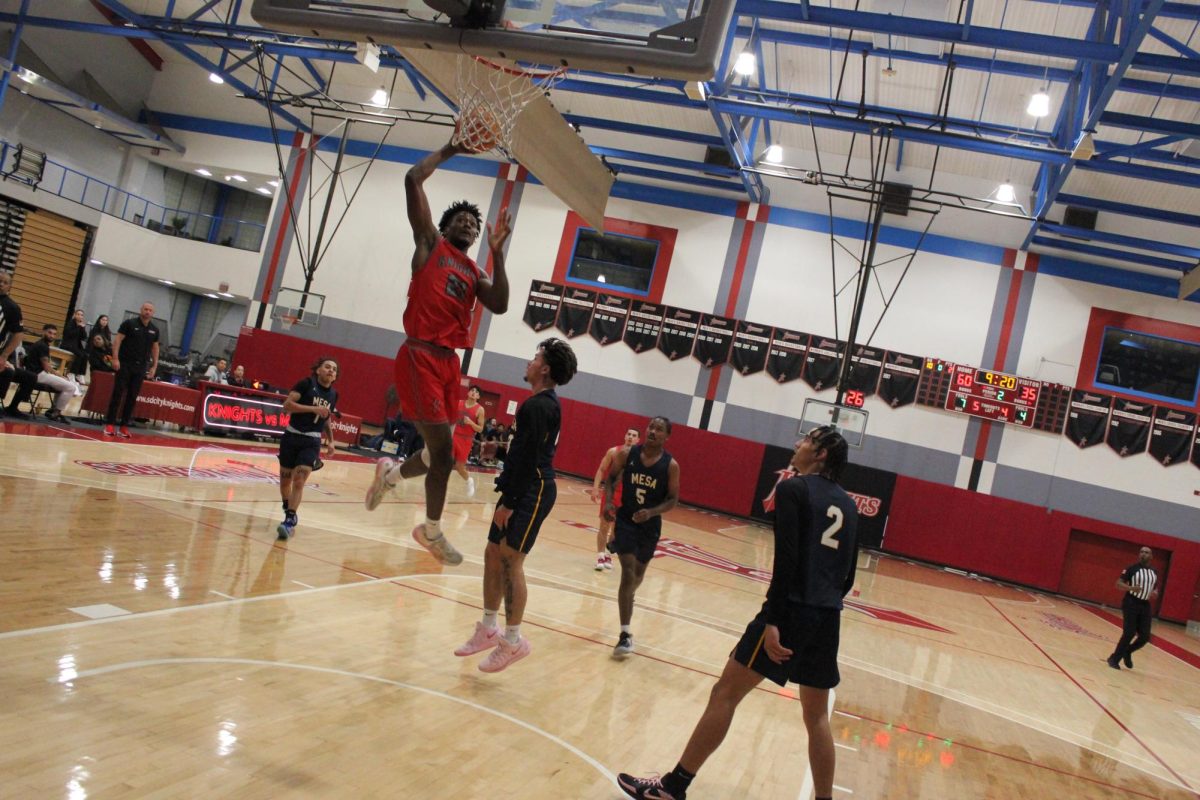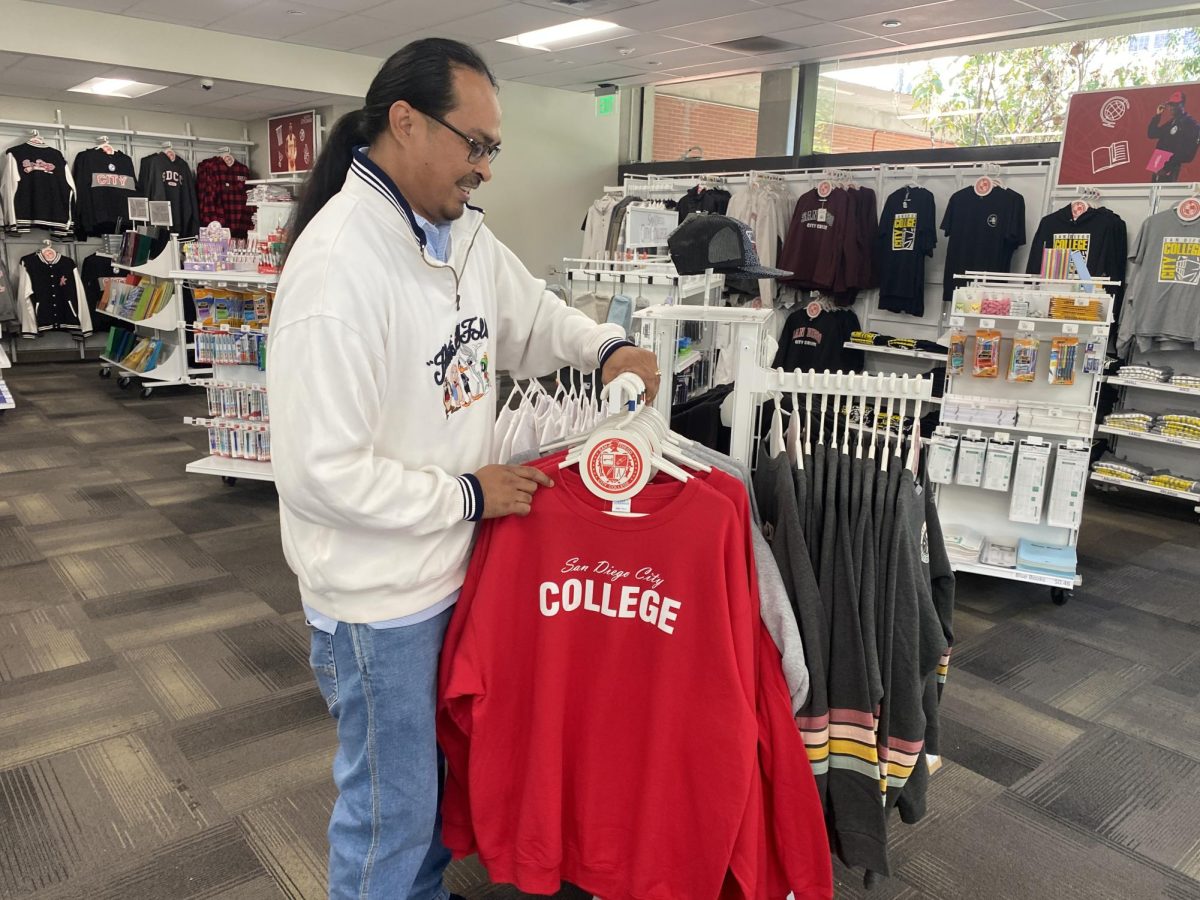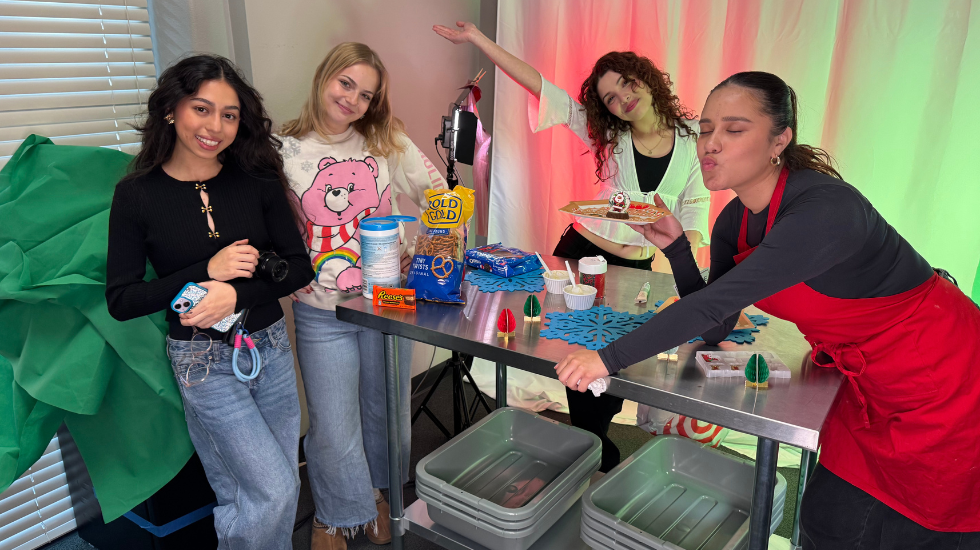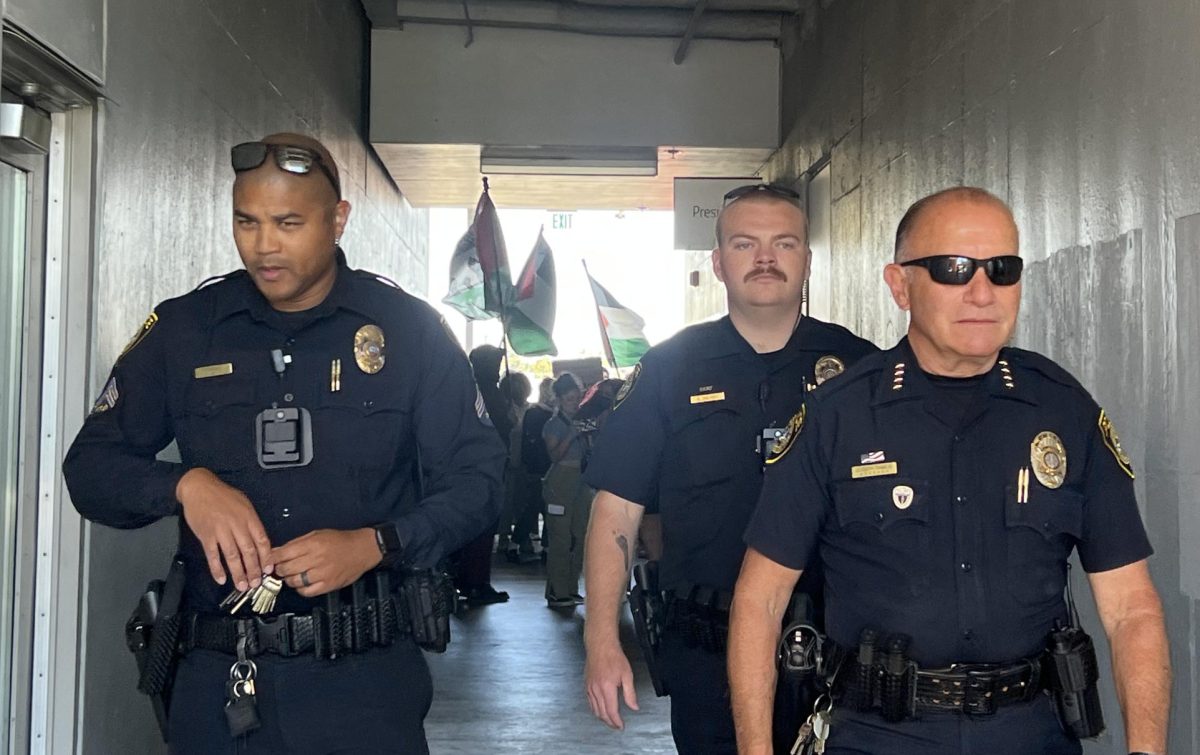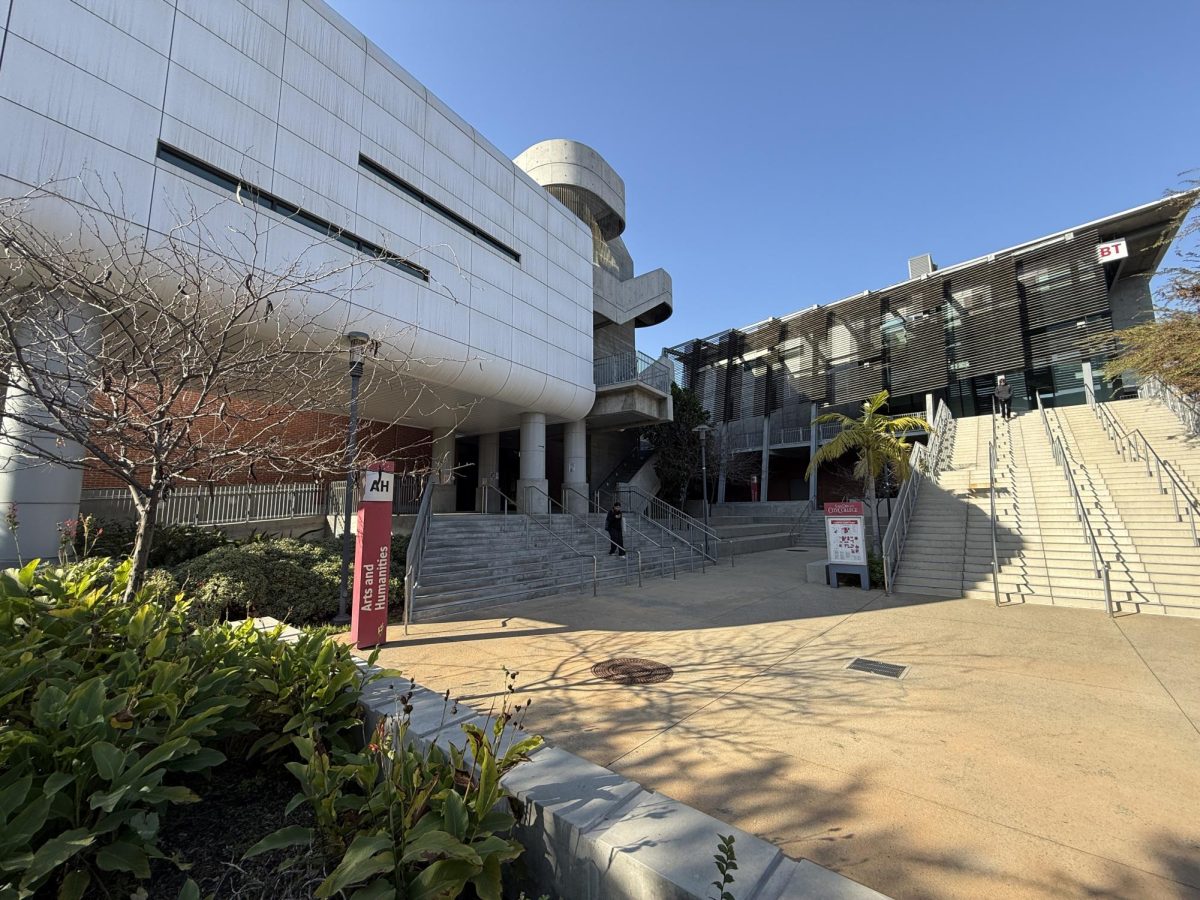From providing free food and clothes on-campus to connecting housing-insecure students to support services off-campus, San Diego City College’s Basic Needs Center offers a range of services that assist students in their academic journey.
This spring 2024 semester, the Basic Needs Center, located in T-341, is using a new Basic Needs Assessment to help program staff assess how they can support students. The platform TBH is providing the system for the new assessment.
According to Basic Needs Coordinator Nydia Dominguez, filling out a basic needs assessment can help students see what resources they qualify for without waiting for the office to get back to them.
“Today is the third day we’ve been open, and we already have like 100 cases, literally. That’s not an exaggeration,” Dominguez told City Times on Jan. 31, in an interview via Zoom. “… with this new system, when (students) submit an assessment form, they’re able to access a dashboard right after that, and that dashboard offers a Resource Navigator, where they can access resources right away.”
The log-in to this system is the same as each student’s SDCCD MyPortal.
Below are resources offered by the Basic Needs Center, according to the City College website.
Food
The Knight’s Table Food Pantry, located in T-150, is open Monda-Friday. The Food Pantry will be open from 11:30 a.m. to 4:00 p.m. on Mondays and Wednesdays, and from 10 a.m. to 4 p.m. on Tuesdays and Thursdays. On Fridays, it will open from 10 a.m. to 1 p.m.
The pantry offers fresh, dry, canned, and ready-to-eat food and drinks. It also offers toiletries and hygienic products.
Students are encouraged to bring their own bags since the Food Pantry will no longer be offering plastic bags in an effort to reduce waste. Students who bring their own bag through Feb. 14 will receive an extra snack.
The only thing needed to access the food pantry is a student ID. Students who need an ID can visit Admissions in A-241.
The Knights Table Food Pantry also has smaller satellite pantries in other areas of the school. These pantries are significantly lighter stocked but are still available to students needing a snack in a pinch.
These satellite pantries are located in the Veterans Service Center, the Dreamer Resource Center and the athletics P building in P-128.
City College also teamed up with Feeding San Diego and San Diego Food Bank to offer students additional free food. Hunger Action Days occur monthly on the first Tuesday of each month in Lot P8.
Due to the ongoing rain, the first Hunger Action Day on Feb. 6 will be relocated to T-150 in the hallway where the pantry is located.
San Diego Food Bank also offers a Food Locator Map, which tracks food distributions happening all over San Diego County.
Clothes
Also in T-150, located next to Knight Table Food Pantry, is Knights Threads & Things. With the essence of a thrift store, Knights Threads and Things offers clean “gently-used” clothing that students may use for school, interviews or work.
City community members looking to donate clothing in good condition for Knights Threads & Things may do so at the Student Affairs Office in M-200.
Technology
Students in need of a laptop may submit the Laptop Loaner Program Technology Request and Agreement Form to request a device.
Student Health Center
City College’s Student Health Center connects students to free or referred health care.
According to the City College website, Mental Health Counseling is staffed by licensed mental health professionals in various disciplines.
Students can request an intake appointment here.
The Student Health Clinic also offers basic health services covered by tuition’s health fee. While not all services offered are covered, most smaller services, such as visits with a registered nurse or nurse practitioner, are.
Financial resources
Students experiencing a financial emergency, such as being impacted by the recent San Diego floods, can apply for emergency financial assistance through the ECMC Foundation.
Students must meet a minimum 2.0 GPA requirement and provide documentation of the recent emergency expense.
Housing
While the Basic Needs Center does not directly provide housing for students, its Welcome Home City program connects students experiencing housing insecurity to organizations that are helping unhoused people in the community.
Students experiencing housing insecurity should apply via the Basic Needs Assessment immediately, as these services receive a high volume of requests and have limited housing-focused assistance.
The wait time for these services can be a little bit longer, Dominguez said.
Additional campus programs
The Basic Needs Office works in tandem with other campus programs designed to further support students.
CalWORK provides counseling and specialized services to students receiving Temporary Assistance for Needy Families benefits and for those who participate in the Welfare-to-Work program, according to the City College website.
Extended Opportunity Programs and Services, or EOPS, include assistance in “the following areas: priority enrollment, counseling/advisement, and preparation for transition to four-year colleges and universities,” according to the program’s City website.
The Basic Needs Center aims to support students navigating the unexpectedness of life and academia.
“We’re primarily here to support any student having any challenges accessing basic needs,” Dominquez added, “Like we mentioned with ECMC, a lot of our resources are set up that way, to support students through unexpected circumstances.”
Update, Feb.15, 10 a.m.: This article has been updated to include TBH, the system being used to provide the new Basic Needs Assessment service.


